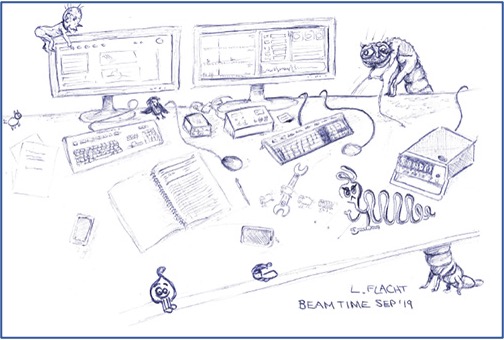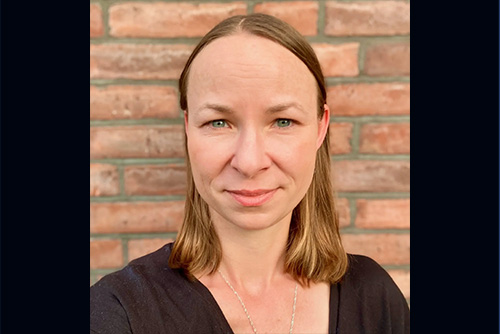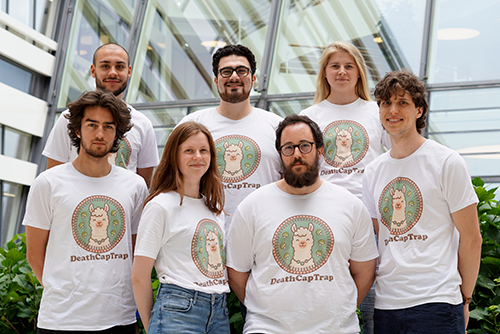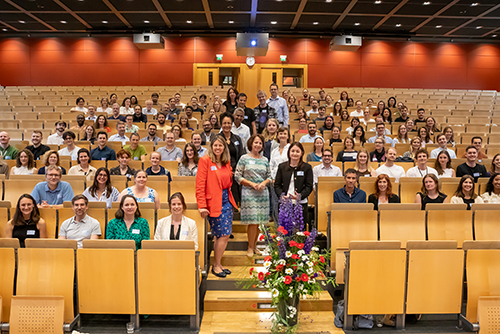Infection Research at the Highest Level
The interdisciplinary Centre for Structural Systems Biology CSSB celebrates its grand opening.
Today, the Centre for Structural Systems Biology celebrates its grand opening on the DESY Campus in Hamburg. In this new interdisciplinary research centre, scientists from ten different research institutions will work together on some of the most challenging projects in structural biology: the functioning of viruses, bacteria and parasites. The research focus of CSSB will be on the elucidation of structures, dynamics and mechanisms of the infection process of these pathogens. With these achievements, CSSB scientists seek to contribute to the development of novel treatments and therapies.
Hamburg’s First Mayor Olaf Scholz, Lower Saxony’s Minister for Science and Culture, Gabriele Heinen-Kljajic and other representatives from regional government joined local businesses leaders, members of all CSSB partner institutions and the international scientific community in celebrating this momentous occasion. With a view of the new building, over 500 guests applauded as Helmut Dosch, Chairman of the DESY Board of Directors, presented Matthias Wilmanns, CSSB Scientific Director, and Dirk Heinz, Chairman of CSSB Council with a ceremonial key thus marking the official begin of scientific research in the new CSSB building.
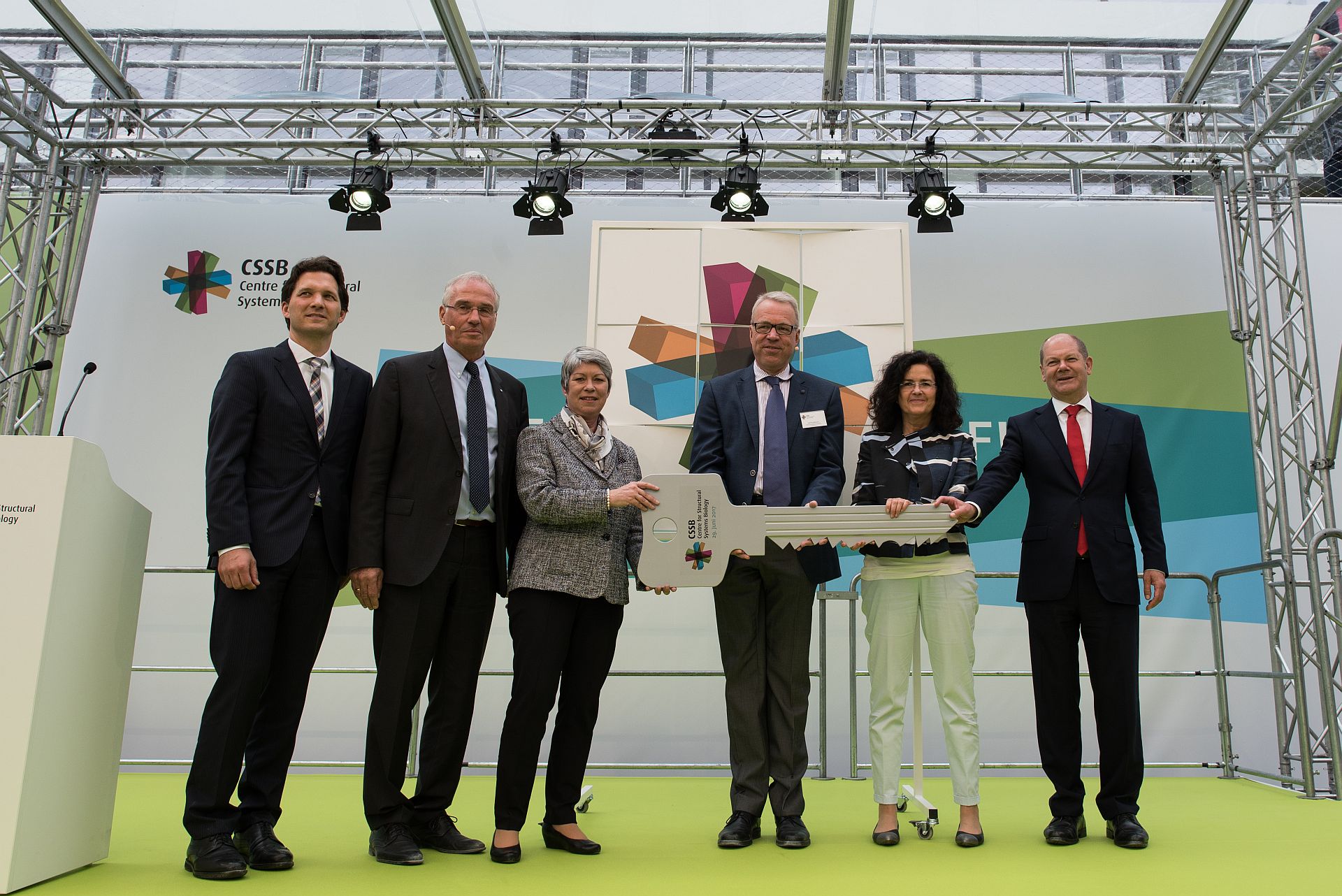
CSSB’s Scientific Director Matthias Wilmanns explains: “I am delighted to open the CSSB today to turn this inspiring vision into a reality. Since coming to Hamburg, it has been my long-term dream to make use of the cutting-edge infrastructures here on the DESY Campus to enable the investigation of important research ideas of biomedical and societal relevance.”
“The new Centre for Structural Systems Biology on the DESY Campus is a superlative cooperation: ten partner institutions will be working together on interdisciplinary research projects. The cooperation of infection biologists, physicists, chemists and physicians is unique and embedded in a world renowned research infrastructure spearheaded by the European X-ray laser. The systematic approach to combatting infection is trend-setting. I am therefore convinced that CSSB in just a short time frame CSSB will become a new beacon of science in Northern Germany,” explains Helmut Dosch, Chair of the DESY Directorate.
“CSSB is a further advancement in institute and interdisciplinary collaboration in Germany. This innovative cooperation of ten different research institutions from the life sciences on the DESY Campus in Hamburg will bring infection research a definitive step forward,” states Johanna Wanka, Federal Minister of Education and Research.
“The grand opening of CSSB is a milestone for interdisciplinary infection and resistance research. Here the scientist have access to European-wide, unique light and X-ray sources and therefore the chance to combine structural, infection and systems biology. Thus creating in Hamburg a novel research focus that places the complex processes and interactions between pathogens and their hosts in the limelight,” states Olaf Scholz, the First Mayor of the Free and Hanseatic City of Hamburg.
“The opening of the Centre for Structural Systems Biology is a milestone for structural biology research in Northern Germany. Especially, the structural, systems and infection biology research in Lower Saxony benefits from the opportunities that DESY, with its modern light sources, offers,” says Gabriele Heinen-Kljajić Lower Saxony’s Minister for Science “CSSB makes it possible to combat infectious diseases with interdisciplinary research.”
Schleswig-Holstein’s Scientific Senator Oliver Grundei wished the CSSB and its staff a successful start. “CSSB should develop a joint profile that shines over Northern Germany,” says Grundei and emphasized that this works only with collaboration. The contributions of the German Federal government and states of Hamburg, Lower Saxony and Schleswig-Holstein have provided both the space and the infrastructure. “This was not easy as it means thinking past the normal boundaries of funding and politics. We were able to accomplish this,” says Grundei and thanks the CSSB Directorate and team “for their intensive pioneering work” in the last weeks and months.
A State-of-the-art Research Building
The new CSSB building, specifically designed to enhance collaboration, innovation and mentoring opportunities for young researchers, will provide scientists with state-of-the-art, in-house technology as well as direct access to DESY’s world renowned X-ray light sources like the synchrotron storage ring PETRA III, and the nearby free-electron laser, European XFEL. The four-storey building with its combination of laboratory and office space will be home to approximately 180 scientists and staff.
The building’s basement was especially designed for the installation of five electron cryo-microscopes, which will enable CSSB scientist to visualize pathogens at various scales of resolution and complexity: zooming in to locate single atoms within a molecule, and likewise panning out to observe the dynamics of host-pathogen interactions happening in real time. Combining this in-house technology with DESY’s X-ray light sources and the European XFEL will enable CSSB to apply different structural methods in an integrated manner thus advancing what scientists refer to as the “resolution revolution.”
The construction of the building was financed by the Federal Republic of Germany, the Free and Hanseatic City of Hamburg, the Federal State of Lower Saxony and the Federal State of Schleswig-Holstein.
CSSB Partner Institutions:
Bernhard Nocht Institute for Tropical Medicine (BNITM)
Deutsches Elektronen-Synchrotron (DESY)
European Molecular Biology Laboratory (EMBL)
Forschungszentrum Jülich (FZJ)
Hannover Medical School (MHH)
Heinrich Pette Institute, Leibniz Institute for Experimental Virology (HPI)
Helmholtz Centre for Infection Research (HZI)
Universität Hamburg (UHH)
University Medical Center Hamburg-Eppendorf (UKE)
Associate Partner Institution:
Research Center Borstel (FZB)
